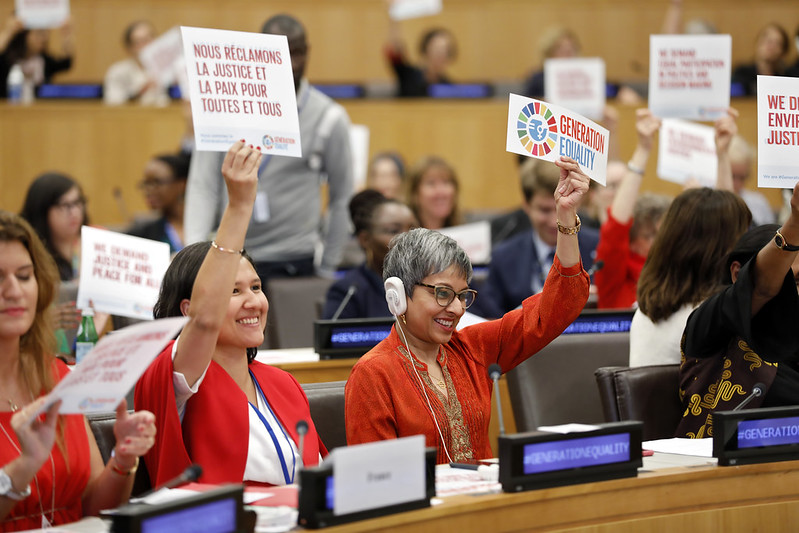United Nations: 5 ways to accelerate women’s economic empowerment

The UN has recently shared the 5 ways to accelerate women’s economic empowerment. The release highlights essentially the need to connect women through financial resources; creating safe conditions for women to accessing work; closing current gaps in care services and expanding decent work programmes to promote a better work-life balance; a call for security and how this one is connected to economic empowerment; and the protection of women’s human rights.
In a statement for the International Women’s Day, UN Secretary-General António Guterres highlighted that “money on the table” is needed in order to end the patriarchy. Countries need to have funds available to invest in women and girls, which means supporting programmes destined to end violence against women and, consequently, to sustain women’s inclusion and leadership in the most varied scenarios. The UN underlines that, in order for developing countries to be able to tackle gender equality in the framework of SDGs, an additional $360 billion per year is needed.
Access to resources and funding
It is still common that micro, small and medium-sized female-owned businesses are underfunded, with a lack of funding of around $1.7 trillion. Regarding information and technology, women are still affected by the lack of access to the internet: in 2022, around 2.7 billion people didn’t have access to it, which is essential to many work-related activities. Furthermore, women working in agriculture have fewer possibilities than men to own or have secure rights for agricultural land. The right to access and use resources translates, in many contexts, to reduced gender-based violence.
Employment measures to support women
The UN maintains that while opportunities for women are needed, it is also essential to ensure that work conditions should be decent and respect human rights. Almost 60 percent of women’s employment is represented by the informal economy, a data that reaches 90 percent in low-income countries; and a woman is paid on average 80 cents for every dollar a man earns. If gender gaps in employment were eliminated, the world’s GDP would increase by 20 percent.
Finding a work-life balance and tackling unpaid care work
With women dedicating around three times more time on unpaid domestic and care work compared to men, the possibility for women to engage in education, rest and leisure, public life and decent paid work is strongly reduced. This is a strong fuel for inequality. In numbers, women’s unpaid care work amounts to $10.8 trillion annually, globally speaking. The UN highlights that investing in the transformation of care systems can only produce positive results, as it will allow women to have more time to dedicate to other areas of their lives, it will create decent jobs in the sector and it will augment access to care services. By taking a proactive approach to the current unpaid work problem, we would be looking at the creation of almost 300 million jobs by 2035.
Increasing security efforts
Threats to women’s security can assume different shapes: food insecurity, gender-based violence at home or in the workplace, conflict, and lack of social protection are some of the examples. Globally, at least $1.5 trillion are spent as a consequence of violence against women. Additionally, between 2017 and 2022 the number of women and girls living in conflict-affected countries doubled: 614 million in 2022. The UN also highlights the link between security and economic empowerment, with crises exacerbating economic inequalities (sometimes even between women), and defends the need for cooperation between different actors, challenging the perception that men are superior to women as economic actors.
Protection of women’s human rights
Women’s economic empowerment isn’t possible without the protection of women’s human rights. Globally, on average, women have only 64 per cent of the legal rights that men enjoy. Key strategies would include adopting policies and laws that support women’s economic empowerment and revoking discriminatory laws and legal frameworks. There is the need to document violations of women’s human rights, gather sex disaggregated data and create partnerships for joint advocacy programmes. It is aso necessary to exercise accountability to protect women’s human rights and guarantee the amplification of women’s voices in decision-making spaces.

